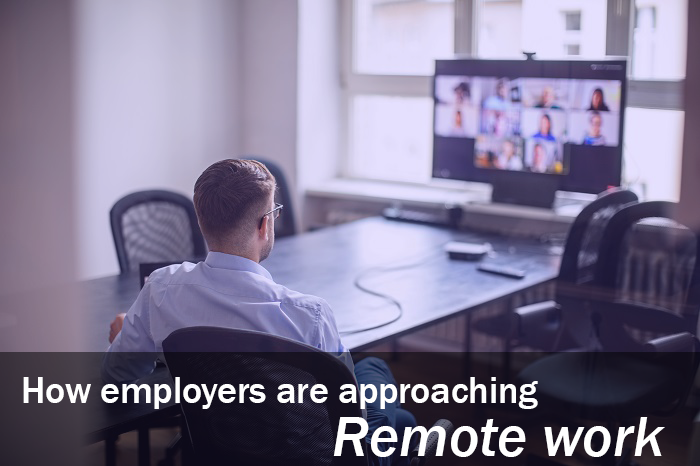Earlier this year, the HRE and HR Tech Conference team unveiled the second edition of the Top 100 HR Tech Influencers. Given their combined many decades of expertise, we’re relying on them to share some of their knowledge–particularly as the world navigates the uncertainties of a pandemic and of managing largely remote workforces, at least for the foreseeable future.
You can read their contributions here. And today, you can learn from Zoë Harte, SVP, head of Human Resources and Talent Innovation for Upwork. This is Harte’s first year on the Top 100 list, but she joined HRE‘s HR Honor Roll in 2019.
HRE: How can HR leaders best evaluate the rapid influx of post-pandemic tools that are flooding the market?

Harte: Tech platforms that make it easy to facilitate communication, connection and collaboration will be more important in a post-COVID world than ever before. It’s critical to ignore the noise and focus on what your employees need that will support their jobs and foster a healthy work environment. When evaluating new tech, we assess our options based on what will help us achieve our business goals, enhance our company culture, strengthen engagement and ultimately make life easier for our employees.
Consider the following criteria when adopting new tools:
- Customization: Employees have a wide variety of needs and ways that their companies can support them fully. The ability to customize our technologies based on those needs, allowing employees to choose their pronouns, for example, demonstrates that we are committed to building an inclusive workplace.
- Supplier diversity: Companies that are committed to more than lip service around issues of diversity and inclusion should diversify their suppliers. An additional benefit is that organizations can broaden their recruiting reach by doing business with companies led by women, minorities and veterans.
Related: 2020 HR Tech Conference goes virtual
HRE: How can HR leaders–and HR tech buyers–continue to focus on and invest in areas like D&I with business priorities so suddenly shifted?
Harte: The ways in which companies respond to the disproportionate impact that the pandemic has on Black and Latinx people, as well as the current Black Lives Matter protests, are critical to the majority of Americans and thus the majority of job seekers. Showing what your company believes and how you proactively address issues around diversity and inclusion is extremely important.
One actionable way to do this is through vendor and supplier diversity, demonstrating with dollars, not just promises, that your company is committed to working with enterprises owned by diverse individuals and groups. As an HR leader, you must have a strong, empathetic perspective of how you facilitate processes because you have to keep in mind that every single employee’s circumstance is unique–whether it be someone living alone, living with someone immunocompromised, kids in the home, etc.
See also: Are your WFH strategies biased?
It’s our job to create an environment where employees can be authentically engaged, while not adding more burden or stress to their life. For example, having options to turn video off during meetings, supplying noise-canceling mics and headphones, implementing resources for parents and even encouraging people to put time blocks on their calendar specifically for personal time.
HRE: How do you think the remote work switch will affect employee expectations for workplace technology?
Harte: Communication is the foundation of a successful remote work structure. Technology that enables authentic engagement and clarity of expectations will need to be prioritized and woven into standing processes. Remote work isn’t just a passing trend, it is here for the long term.
In order for companies to keep employee engagement high and the day-to-day running smoothly, they need to invest in workplace technology that will drive business continuity. In addition, team members shouldn’t feel isolated just because they’re distributed, and tools that build on ways for people to innovate and contribute while supporting their overall wellness and mental health will be in high demand in the months to come.
Related: Register here for the virtual HR Tech Conference



